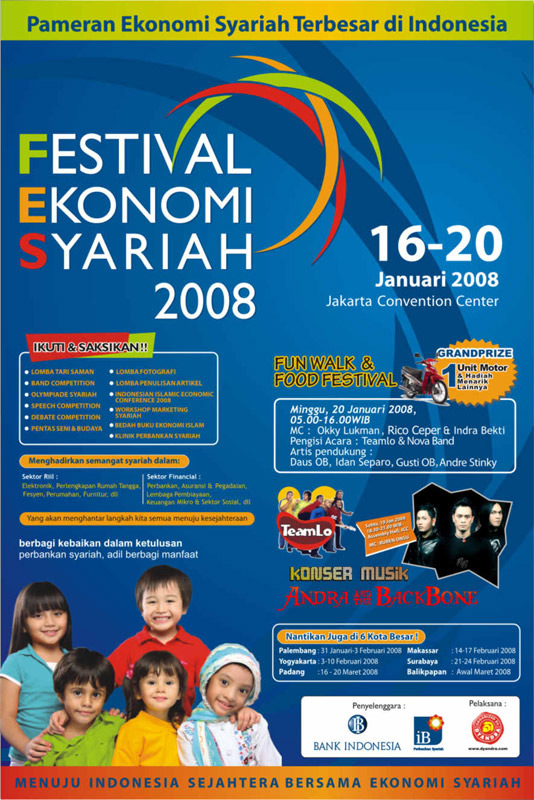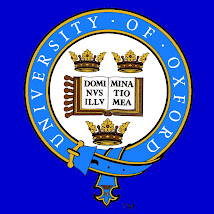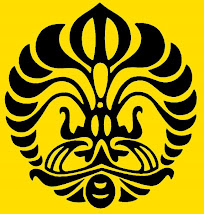Al-Azhar University was initially founded as a
Jami'ah ("university" in Arabic) which issued
academic degrees,
[3] and had individual
faculties[4] for a
madrasah and theological
seminary,
Islamic law and
jurisprudence,
Arabic grammar,
Islamic astronomy,
early Islamic philosophy and
logic in Islamic philosophy.
[3]
Contents
Reputation
Among the university's stated objectives is the propagation of Islamic religion and culture and the Arabic language (the language of the Qur'an.) To that end, it maintains a committee of ulemas (Islamic scholars) to judge on individual Islamic questions, operates a printing establishment for printing the Qur'an, and trains government-appointed preachers in proselytization (da'wa).
Politics
In 1961, Al-Azhar was re-organized by the Nasser Government and several secular faculties were added to the university, such as medicine, engineering and agriculture. An Islamic women's faculty was also added in the same year, six years after Zaib-un-Nissa Hamidullah became the first woman to speak at the university.[citation needed]
Al-Azhar is run by a Supreme Council headed by a Grand Imam, known as "Sheikh Al-Azhar", which decides on matters pertaining to general policy. Unlike most universities, it maintains a sectarian admissions policy and does not admit students who are not practicing Islam,[citation needed] thus it combines the institutions of a Madrassah and theological seminary, with those of the faculties established in 1961.
Literature
Al-Azhar library, which was consolidated in 1897, is considered second in range, variety and importance only to the Egyptian National Library and Archives in Cairo. It possesses 595,668 books or manuscripts, some dating back to the 8th century.[citation needed] The library does not collect non-Islamic literature.[citation needed]
Since 1929, Al-Azhar has published a magazine (now monthly) whose stated mission is to advertise religious rules, subjects related to Islamic literature, and basic jurisprudence (shariah), including sections on history, biographies, translated texts and news concerning the Muslim world.
In 2005, the Al-Azhar online document archive was launched[citation needed]. This is a joint venture between the university and the HH Sheikh Mohammed Bin Rashid Al Maktoum IT Education Project (ITEP) in Dubai.[citation needed] The archive intends to eventually give access to all manuscripts (c. 7 million pages) in Al Azhar library.
Political views
Muhammad Sayyid Tantawy, the current Imam of Al-Azhar, has declared that the perpetrators of the 9/11 attacks and suicide bombers are "heretics" who are not following the true path of Islam.[citation needed] In a recent conference in Indonesia, he asked all "true believers" to deny proponents of extremist and heretical forms of Islam places to speak in the mosque, thus preventing the spread of violent ideologies.
Ali Gomaa', the Egyptian Mufti associated with Al-Azhar, has also declared that Islam authorizes the thwarting and eradication of insurgents who kidnap and kill civilians in Iraq since they wreak havoc on Earth.[citation needed]
Sheikh Tantawy has mentioned that among the priorities of Muslims are "to master all knowledge of the world and the hereafter, not least the technology of modern weapons to strengthen and defend the community and faith". He adds that "mastery over modern weaponry is important to prepare for any eventuality or prejudices of the others, although Islam is a religion of peace."[5].
Sheikh Tantawy also reasserts that his is the best faith to follow (a tenet common to proponents of many religions) and that Muslims have the duty of active da'wa. He has made declarations about Muslims interacting with non-Muslims who are not a threat to Muslims. There are non-Muslims living apart from Muslims and who are not enemies of Islam ("Muslims are allowed to undertake exchanges of interests with these non-Muslims so long as these ties do not tarnish the image of the faith"), and there are "the non-Muslims who live in the same country as the Muslims in cooperation and on friendly terms, and are not enemies of the faith" ("in this case, their rights and responsibilities are the same as the Muslims so long as they do not become enemies of Islam").
On freedom of speech
In October 2007, Muhammad Sayyid Tantawy, the current Imam of Al-Azhar, drew allegations of stifling freedom of speech when he asked the Egyptian government to toughen its rules and punishments against journalists. During a Friday sermon in the presence of Egyptian Prime Minister Ahmed Nazif and a number of ministers, Tantawy is purported to have stated that journalism which contributes to the spread of false rumours rather than true news deserves to be boycotted, and that it is tantamount to sinning for readers to purchase such newspapers. Tantawy, a supporter of Egyptian President Hosni Mubarak, also called for a punishment of eighty lashes to "those who spread rumors" in an indictment of speculation by journalists over Mubarak's ill health and possible death.[6][7]
This is not the first time that he has criticized the Egyptian press regarding its news coverage nor is it the first time he in return has been accused by the press of opposing freedom of speech. During a religious celebration in the same month, Tantawy released comments alluding to "the arrogant and the pretenders who accuse others with the ugliest vice and unsubstantiated charges". In response, Egypt's press union issued a statement suggesting that Tantawy appeared to be involved in inciting and escalating a campaign against journalists and freedom of the press.[8]
Notable persons associated with the university
Al-Azhar University has had a huge impact on the religious, cultural and political arena in Egypt, the Middle East, and the whole Islamic world (see the list of notable persons below). Numerous persons of note have graduated from the university including Taha Hussein, one of the pre-eminent Arab intellectuals and writers, and a leader in the twentieth century modernist movement in Egypt. Saad Zaghlul, former Egyptian prime minister and leading political figure in the first half of the same century especially against the British occupation of Egypt, was also an alumnus of Al-Azhar. Before them was Muhammad Abduh, founder of Islamic Modernism and respected Islamic scholar, and Ahmed Orabi who was the first Egyptian army officer and the leader of the Urabi Revolt. The list of notable alumni also includes Hassan-i Sabbah, founder of the Assassins in the 11th century. Hassan al-Banna, founder of the Muslim Brotherhood and purported mastermind behind the assassination of Egyptian prime minister Mahmud Fahmi Nokrashi in 1948[citation needed], graduated from the university. Sheikh Ahmed Yassin, the founder of Hamas, was also an alumnus.
Before 1800
1800 - early 1900s
1910-1950s
- Hassan al-Banna, founder of the Muslim Brotherhood (Hassan al-Banna graduated from Daru 'Ulom which is an affiliate of Cairo University)
- Omar Abdel Rahman, leader of Al-Gama'a al-Islamiyya
- Taqiuddin al-Nabhani, a Sunni, Shafi'i, Sufi, Islamic jurist, theologian, and founder of the Islamist Hizb ut-Tahrir organization.
- Sheikh Ahmed Yassin, co-founder and leader of Hamas
- Saad Zaghlul leader of 1919 revolution in Egypt.
- Taha Hussein, Influential Egyptian writer and intellectual
- Ibrahim Mukhtar, first Mufti of Eritrea
1950-
- Shire Jama Ahmed, Somali linguist who devised a unique Latin script for the Somali language[9]
- Maumoon Abdul Gayoom, President of the Republic of the Maldives[10]
- Nik Aziz Nik Mat, Menteri Besar (Chief Minister) of the Islamic state of Kelantan in Malaysia.
- Azizan Abdul Razak, Menteri Besar (Chief Minister) of the Malaysian state of Kedah.
- Mahmud Shaltut, Grand Sheik of Azhar, issued in 1961 a Fatwa (Islamic ruling), declaring that Al-Azhar recognizes Shi'ism as a valid branch of Islam.
- Taha Jabir Alalwani, President of Cordoba University, former Chairman of the Fiqh Council of North America, and the President of the International Institute of Islamic Thought in Herndon, Virginia (USA).[1]
See also
References
- ^ Britannica article
- ^ Encyclopedia Britannica p.37 1993 edition ISBN:0852295715
- ^ a b Alatas, Syed Farid, “From Ja¯mi`ah to University: Multiculturalism and Christian–Muslim Dialogue”, Current Sociology 54 (1): 112-32
- ^ Goddard, Hugh (2000), A History of Christian-Muslim Relations, Edinburgh University Press, p. 99, ISBN 074861009X
- ^ "The Grand Imams of Al-Azhar". Retrieved on 2006-06-24.
- ^ allheadlinenews.com
- ^ aljazeera.net(Arabic Online)
- ^ International Herald Tribune
- ^ David D. Laitin, Politics, Language, and Thought: The Somali Experience, (University Of Chicago Press: 1977), p. 102
- ^ Gayoom, Maumoon Abdul - MSN Encarta
External links
 Islamic Economic
Islamic EconomicAdd & Edited by:
akhwat_mu@yahoo.co.id & H2O
INTRODUCTION
Islam uniquely considers distribution as the economic problem, and Muslims do not share the obsession of capitalists and communists with production. Because Islam differentiates between the basic needs and luxuries, there exists no concept of relative scarcity of resources in Islam. The resources available on earth are sufficient to secure the basic needs (food, clothing, and shelter) of fifty billion human beings. Such a misunderstanding has concealed the reality that starvation, poverty, and economic backwardness, result from maldistribution exasperated by man-made laws and systems. Under the Islamic system, Nigeria alone could support the whole of Africa, as occurred in the past when, under the system of Islam, Africa sent food to relieve the famine in Medinah during the rule of Omar bin al-Khattab.
By using labels like "Third World" and "First World," this economic conspiracy has worked behind a deceived populace who fail to realize that the "Third World" countries are actually First World in terms of resources. While organizations like Mercy International and UNICEF keep the masses content under the circus act of "humanitarian aid," the capitalist machine works behind the stage to gobble up the resources of the world.
The implementation of Islam would eliminate the stranglehold by which the elites control the polices of the world and milk its resources. Unlike the current systems, Islam will not impose any limits on the amount of wealth that an individual can acquire, thus creating and maintaining an incentive to work. The shortsightedness of limiting production stems from the man-made ideologies that fail to understand the nature of creation. Because the Islamic system reflects the wisdom of the Creator, then the implementation of Islam will provide a society conducive to life that will address the needs of humanity based on the correct understanding of life. Muhammad (saaw) said, "The son of Adam, if he had two valleys of gold, would desire a third and would not be satisfied till he bites the dust."
While generating massive abundance and wealth of resources by eliminating all the restrictions and oppressive systems that prevent production, Islam will safeguard against abuses of exploitation in acquiring wealth by limiting the way in which wealth is acquired. For instance, Islam denies the "free" market of Capitalism which has led to the situation of "survival of the fittest". Such an unrestricted environment has led directly to the current situation where multinational companies have scavenged the resources of the world like parasites unrestricted in their "freedom." Under the Khilafah, natural and vital resources would be categorized as public property and a right of every citizen of the state - Muslim or otherwise - in accordance with the Prophet's (saw) Hadith that states, "The humans have a right to three things - water, green pastures, and fire-based fuels (An-Naar)."
In Islam, public revenue from oil and natural resources would be used to secure the needs of the whole Muslim Ummah, and not to line the pockets of casino owners. The Khilafah would provide public and vital resources without charge to cover the needs of every individual and family, and the monopolies that multinational corporations maintain to dictate the lives of the people would dissipate.
The Shariah also defines certain rules that regulate company structure, effectively preventing abuse and corruption. For instance, Islam forbids monopolies by outlawing the hoarding of wealth (Al-Ihtikar), and eliminating copyright or patency laws that would open the avenue for potential monopolies to develop. Also, Islam protects the ownership of businesses and companies by restricting ownership of companies only to those who contribute both capital and effort to the company or business, thus effectively putting the seal on such concepts as "corporate takeover" from ever becoming a reality.
In the systems of today, the stock market offers no such protection and allows for any outsider to secure a share in any business or corporation and impose his policies on the company agenda, even if that individual puts no effort or work into the business. Today, food manufacturers have cultivated the art of burning surplus food and dumping surplus milk into the ocean to artificially inflate prices by creating "scarcity," an art that would cease to exist with the implementation of Islam.
Unlike today's system, which opens all doors for anyone to access wealth by any means, Islam categorizes wealth in a systematic way that both protects the right of individuals to access wealth and, simultaneously protects the society and secures the needs of the Ummah. Islam mandates vital and natural resources as public property while allowing for unlimited access to luxury items. Also, Islam protects the society in ways that corrupt man-made systems have overlooked by defining certain needs as "prohibited needs." For instance, to protect the honor (ird) of the woman, Islam would outlaw all forms of prostitution, pornography, or any type of sexual bombardment that exploits the charms and physical attractiveness of women. In addition, Islam would prohibit alcohol and gambling, killing every industry and institution derived from such filth that has seeped the Capitalist Nations in a downward spiral of corruption, social turmoil, and moral devastation.
In addition, the form of currency in Islam will break the economic hold of the Kuffar over the Muslim lands. The Khilafah would link the currency to gold, silver or some other precious resource. By backing the currency with resources of real value, Islam creates a stable medium of exchange and eliminates the concepts of linking currencies that allow nations to manipulate currencies and maintain a monopoly over the financial markets of the world.
Just a glance at the economic system in Islam suffices to explain the fear and dread that America and the West have shown towards Islam, and explains the dedication and effort exerted towards curtailing or suppressing the resurgence of Islam as a system. Such a system would not only break the grip that the Capitalist nations have secured over the wealth and resources of the Muslim lands and dethrone their upper hand over the policies of the world, but would provide the long-awaited solutions to life that they have kept a secret from their own people with their extensive media manipulation and education. Because the currency in Islam is linked to gold or other precious resources, the implementation of Islam would cut the economic chains that America employs by linking other currencies to the dollar.
In addition, the effectivity with which the Islamic economic systems correctly defines the economic problem and secures the needs of every individual, and eliminates all forms of economic and social corruption, would provide fuel for the foreign policy of the state that would enable the Khilafah to easily spread Islam ideologically throughout the world.
For such a system to emerge, the Ummah must revitalize within itself the Islamic way of life and cultivate the Islamic culture and the Islamic Aqeedah as the sole basis for providing solutions to its problems. Without the clear conviction in the Islamic Aqeedah and the comprehensive understanding of the Islamic system, the corrupt regimes will continue to tame and manipulate the Muslim masses with empty slogans, while behind the curtains, the feudal landlords of Pakistan will maintain their status and the Gulf sheikhs will continue to squander the public resources of the Ummah.
Shariah Rules
When the poor are permanently poor, and the rich, permanently rich, that is oppression! All around the world today that economic oppression exists, and is constantly increasing, - the poor grow poorer and the rich, richer. Riba is the cause. A predatory global elite, centered in the West, but also present around the world, is constantly sucking the wealth of mankind and impoverishing the masses through riba. Their ultimate objective is to utterly enslave all of mankind in a new sophisticated slavery. Political, legislative, judicial and legal systems, the media etc., are all created by the oppressor, and all function to preserve the system of economic oppression. Allah, the Most High, has strictly prohibited riba. Yet the world today, including the Muslim world, is saturated with riba. This has confirmed the ominous prophecy of Prophet Muhammad (s) who prophesied, in a hadith received from Abu Hurairah (ra), the following:
There will come a time, he said, when you will not be able to find a single person in the world who will not be consuming riba. And if anyone claims that he is not consuming riba then surely the vapor of riba (In another text the dust of riba) will reach him. (Abu Daud, Mishkat)
What is riba? Why it was prohibited? What is the logic behind that? What types of interest has Islam prohibited? What should we do about this state of affairs?
Dealing with riba (usury or interest) has spread widely among many Muslims today; to the point that many Muslims do not see any problem with it, either because of lack of knowledge or absent-mindedness. Despite the fact that all Muslim scholars agree that dealing with riba (usury or interest) is a major sin because the prophet (S.A.W.) mentioned explicitly in a hadith reported by Imam Bukhari and Muslim, "Avoid the seven destructive sins", then he mentioned one of them as, "and dealing with riba (usury or interest)"
Muslims are very particular about Halal and Haram. The confusion, whether interest is same as usury (Riba) or not, needs a clarification for good. This is a historic fact that usury has been prohibited in all original texts of Torah, Bible and Qur'aan.
However, practically, Usury or interest is same as a guarantied return to the lender regardless the borrower makes a profit or not. The Islamic view is truly just and humanitarian. It requires a lender to participate in the profit as well as loss of the borrower if any. From Shariah point of view, interest is Riba and it is Haram.
CONTRACTS IN ISLAMIC COMMERCIAL AND THEIR APPLICATION IN MODERN ISLAMIC FINANCIAL SYSTEM
1.0 Introduction
Islamic commercial law, known as fiqh muammalat in Islamic legal term, constitutes an important branch of law dealing with issues of contracts and the legal effect(s) arising from a contract; be it a valid, void or avoidable contract respectively. Contract is Islamic law, on the other hand is a complex legal discipline in both its jurisprudential foundation and its practical function. Also contract covers a variety of dealings and transactions to meet the needs of the society. No doubt, issues of commercial transactions, unlike devotional issues ('ibadat), are ever lasting and bound to change due to the changing circumstances and situations of both the object and subject of the transactions. Therefore it is not surprising that the first article of the Majallah al-Ahkam al-'Adliyyah (the civil code of the Ottoman Empire) endorses the idea that man is social by nature and that social life is essential to him, stating that, "in view of the fact that man is social by nature, he cannot live in solitude like other animals, but is need of co-operation with his fellow men in order to promote an urban society. Every person, however, seeks the things which suit him and is vexed by any competition. As a result, it has been necessary to establish laws to maintain order and justice. This approach of the Mejelle is seldom found in the other compilation of law.
As mentioned above, contract is a complex legal discipline both in its jurisprudential foundation and in its practical function. Intellectually, it is perhaps the most rewarding field of the law in action. The mechanism of contract formation depends on the fundamental conception of contract(s) under Islamic law, its interrelation with other modes whereby an obligation may be generated, the extent of the freedom of the parties and the grouping of contracts according to different classifications, of the close interaction of all these factors.
2.0 Historical Evolution of Contract in Islamic Law
As for the evolution of the law of contract, Islamic law of contract, unlike other legal systems, starts with Quranic verses which already contain both the rudiments of several types of nominate contracts as well as certain contractual maxims of general import. Thereafter, the traditions supplement the Quranic groundwork. The jurists in all Islamic Schools of law later developed the principles of contract. In the Quran, all in all, there are only over forty verses on a dozen types of commercial contract. Apart form one important verse on performing contract that is Quran 5:1 which enjoins believers to "keep faith contracts" (awfu bi al-'uqud), and the three verses with a common theme of "keeping promise", nonetheless, there are few verse which reveal a relatively advances stage of commercial contracts, such as sale and hire, charges in rem of personal guarantee as security fiduciary contracts such as deposit and the like. The whole idea of having a contract is to satisfy the consent of both parties to a contract and it seems, not only in Islamic legal system but also in other legal system, contract is the best available means to reflect the intention an accordingly the consent of the parties. To this effect, the Quran has already prescribed on the believers "not to devour your assets among yourself in vanity, except in trading by your consent". In addition, the Prophet (PBUH) is reported to have said that "The property of a Muslim is not licit for others to enjoy unless by his consent".
In any case, until the 19th century, no definition of contract is to be found in the treatises of Islamic law. This is because Islamic law never developed a general theory of contract. Instead, the overwhelming majority of Muslim jurist have focused on the contract of sale which they regarded as the model for all sorts of contracts. However, the Islamic Civil Law Codification which took place in the 19th century, namely both the Majallah al-Ahkam al-'Adliyyah and Murshid al-Hayran (the 1891 Egyptian version of the Ottoman's Majallah), started to give a precise definition to a contract. The Majallah, for instance, describes contract as a little contracting parties obligating themselves with regards a given matter and binding themselves together with the same as result of connecting an offer with an acceptance. Also according to the Majallah, "contracting is the connection of an offer with an acceptance in a lawful manner which marks its effect on the subject of the connection.
3.0 Essential Elements of a Valid Contract
For a valid contract to take place in Islamic law, certain conditions are to be met. From the foregoing definition of the contract, it appears that a valid contract bases itself on six elements, namely the offeror and offeree; offer and acceptance; and the subject matter and the consideration. As for the parties to a contract, they must be legally competent to enter into a contract. The competence to transact is Islamic law is measured largely by two aspects, namely prudence and puberty as revealed in the Quran 5:4, "Prove orphans till they reach the marriageable age; then if you find them if sound judgment, deliver over unto them their fortune". With reference to an expression of both offer and acceptance, Islamic law of contract recognizes both express contracts as well as what has been described as contract by conduct. It presupposes the making of an offer either orally by writing or by conduct. In certain cases, acceptance may also be implied from a party silence. However, Islamic law is distinct from other legal systems that it insists on the session of contract (majlis al-'aqd) in the sense that both the offer and acceptance are to be jointly connected in one single session without any gap in time or place. Therefore, the session occurs in any natural place where the parties meet to form their agreement. The session therefore creates the essential unity of the time and place necessary for the dual declarations of intention and consent.
Based on the above prescription which is agreeable to all schools of law, it may be said that certain interruptions during the session such as stopping to pray, or discussing other subjects, changing positions or attitudes, or even falling asleep are held to terminate the majlis and therefore the offer. Also under this principle of law, the acceptance should be immediate. However, before the offeree gives his acceptance, the offeror may withdraw his offer. Again, another provision of law which is attached to Islamic law is the notion of khiyar al-majlis i.e. right to revoke the concluded offer and acceptance, provided both the parties are still available in the session of the contract left the session, the right to do so ceases to exit. As there are various interpretations surrounding the exact meaning of majlis or session of contract, the present writer, based on certain arguments, is more inclined to appeal to customary practice of any society to decide on the separation from the session of contract.
Pertaining to both offer and acceptance, classical Islamic law seemed to insist on the notion of contracts inter presenters in the sense that the contracting parties should hear other's declaration which is, it is respectfully submitted, devoid of legal relevance. The writer's opinion is that contracts inter absentees by means of representatives or modern communication systems such as the telephone, telex, fax, e-mail, letter are equally valid provided they are performed in one single session of contract.
As for the subject matter of contract, both the item and consideration, Islamic law stresses on the following matters, i.e., lawfulness, existence, deliverability and precise determination. Lawfulness requires that the object must be lawful, that is something which is permissible to trade. It must be of legal value that is, its subject matter (mahall) and the underlying cause (sabab) must be lawfull; and it must not be proscribed by Islamic law, nor a nuisance to public order or morality. Also inherent in the lawfulness of the object is the condition that the object must be legally owned (or authorized) by the parties to a contract. The issues of existence presuppose that the object of a contract must be in existence at the time of contract. Thus, it is illegal for example to sell fetus. Delivery, on the other hand, indicates that the object must be capable of certain delivery. The classical jurists therefore, prohibit the sale of a camel which has fled a bird in the air or a fish in water. Finally, the object of a contract must be determined precisely as to its essence, its quantity and its value.
As for the consideration of price, Islamic law does not restrict it to a monetary price, but it may be in the form of another commodity. The Islamic prohibition against uncertainty requires that the price must be in existence and determined at the time of the contract and cannot be fixed at a later date with reference to the market price, nor can it be left subject to determination by a third party. In contract of money-exchange (sarf), the rule of riba must be adhered to render the contract valid. May be spot or in the future.
The capability of the parties to contracts is of prime importance for the validity of the contract. In Islamic law, no person can validly conclude a legal transaction without first having attained physical and intellectual maturity that being the equivalent of majority to enjoy full capacity, a person, whether male or female, should attain physical puberty (bulugh) and enjoy sound judgment known also as prudence (rushd) in his or her judgment. The Shafi'i school of law adds a third requisite for majority and that is sound judgment in regard to religion.
Puberty is attained for boys and girls with (a) the appearance of coarse hair around the sexual parts of the body al though this sign is not given any significance by the Hanafis with (b) vouluntary or incoluntary emission of the seminal fluid or with (c) the attainment of a given age except for Malik himself (not his school), who do not consider age as indicative of puberty. Other signs of puberty particular to girls are menstruation and pregnancy. As mentioned above, for the majority of scholars prudence (rushd) equates to sound judgment in financial matter. As for the argument of the Shafi'is, this is weak simply because an impious Muslim might well be of sound judgment with regard to business matters. In brief, a person is deemed of age and enjoys full capacity.
However, between infancy and majority a minor will normally reach the age of discernment or age of reason (sinn al-tamyiz) admittedly being six or seven Hanafis and Malikis give value to some transaction performed by a discerning minor; the authorize the discerning minor to conclude contracts fully beneficial, such as acceptance of gifts of bequests without his guardian's authorization. He is forbidden to conclude fully detrimental contracts such as granting loans or guarantees, whereas contracts which could end up by being either beneficial of detrimental, are subject to the guardian's ratification. Under Hanbali teaching a minor, whether discerning or not, cannot enter any kind of financial transactions but the contracts are valid with the approval of the guardian. Shafi'i have disapproved the contracts of a minor out rightly.
Apart from this general requirement of the legal capacity to enter into any kind of contract, Islamic law also imposes certain legal interdictions in the interest of third parties. The third party may confirm or annul the disposition of a person who is interdicted from disposing of his property. Therefore, the insolvent (al-muflis) is interdicted from disposing of his property by the judge in the interest of his creditors. Also, a person ill with death sickness is interdicted in the interests of person's heirs or creditors.
4.0 Classification of Contract
Contract, from an Islamic legal perspective is conceptually divided into two main categories, namely unilateral and bilateral contract. While the former is gratuitous in character and does not require the consent of the recipient, the latter is more bound to strict rulings and guideline since it requires the consent of both the parties to a contract. Also what is normally 'tolerated' in unilateral contract, would not necessarily be the case in bilateral contract. Therefore, the (strict) conditions required for both the offeree and the subject matter of the bilateral contract would cease to apply in an unilateral contract. Unilateral contract comprises of transactions in favor of the recipient such as gift (hadiah, hibah), off-set of the debt (ibra), will (wassiyyat) endowment (waqf) and loan (qard).
The bilateral contract covers the remaining transactions in Islamic law which can be further divided into different classifications according to the very purpose and reason d'etre of the deal and agreement. In this regard, we may perhaps, classify these contracts to six classifications which are as follows:
- Contracts of exchange ('uqud al-mu'awadat)
- Contracts of security ('uqud al tawthiqat)
- Contracts of partnership (shirkah)
- Contracts of safe custody (wadi'ah)
- Contracts pertaining to the utilization of usufruct ('uqud al manfa'ah) and
- Contracts pertaining to do a work (e.g. wakalah and ju'alah)
This classification is not meant to be exhaustive because in the future many new contracts with different features, would possibly come to exist on the basis of the doctrine of permissibility (ibahah), as previously discussed, that would render all commercial transactions permissible in the absence of a clear prohibition. Nevertheless, the above classification seems to be quite comprehensive to cover all existing contracts found in Islamic fiqh literature.
Mention should be made that each of these classifications consists of different transactions but contribute to the same purpose an reason d'etre of the underlying contract. For example, contract of exchange, will primarily concern trading as well as selling and buying activities inclusive of their subdivisions such as cash sale, deferred payment sale, deferred delivery sale, sale on order, sale on debt , sale on currency, auction sale and so on and so forth. Similarly other types of contracts also include many sub-divisions relevant to respective classification. For example, contract of security deal not only with with surety ship (kafalah) but also with pledge (rahn) and transfer of debt (hiwalah) because the very purpose of these sub contracts under contracts of security was to protect the interest of the parties to a contract particularly the interest of the party in whose favor the respective contracts are concluded. As far as contract pertaining to the utilization of usufruct are concerned, it also cover a few sub-contract such as ijarah (hire and lease) ariyah (loan of tangible asset), waqf (endowment), qard (loan of money), etc. The contract of partnership (shirkah) also includes different types of partnership such as mudarabah (profit and loss sharing) musharakah (profit and loss sharing), sharikah al-abdan (partnership by contributing effort and skill), sharikah al-wujuh (partnership based on credit and reliability), muzara'ah (partnership in farming), musaqat (partnership in fruit trees), etc.
5.0 Reflection and Overview on the Classifications of Contracts
Although contracts in Islamic law of transactions are classified into different categories, it seems that the basic contract, in many cases and situations are the contract of exchange and utilization of usufruct. The former presupposes the transfer of ownership while the later the transfer of usufruct of a property from one party to another. This is clear from the definition of both sale and hire in Islamic law Sale is defined as "the exchange of one commodity for another, one of which is called the object and the other the price", or "the transfer of ownership of property for another. Hire or ijarah is defined as the transfer of the usufruct for a consideration. Both these two contracts constitute the main activities of commercial activities because the remaining contracts are largely dependent on these two contracts.
Therefore, the law on sale as the contract par excellence and, next to it, on hire, was greatly expanded in Islamic law literature. These two contracts are the bases for the other contracts to take place. In other words, other contracts are dependant on these two contracts to exist and to give effect. On the contrary, these two contracts, relatively speaking, can be concluded between two parties without any need for other (supporting) contracts. For instance, hiwalah, kafalah and rahn cannot stand by itself in the sense that they are all dependent on the contract of exchange be it sale or lease/hire. In the case of hiwalah which means transferring a debt from one debtor to another, it cannot take place unless the debt relationship has already established between the transferee, the transferor and the principal creditor. The debt relationship, on the other hand, may take place either out of deferred payment sale or out of direct loan (qard) contract. Hence, it is obvious that hiwalah originates from the sale transaction (as well as from loan transaction) kafalah, rahn, etc.
This shows, inter alia, that contracts are inter-related to form a complete system of mu'amalah to ensure justice as well as to meet the needs of people which vary from one condition to another. Therefore, it is relevant to conclude that Islamic commercial law consists of many different types of contracts to suit different needs and circumstances. In other words, theoretically, Islamic commercial law would be able to satisfy the need of a person to buy a commodity on credit, or the need to have the guarantor against the third party, or the need to have the fund for business enterprise purposes, or the need to have in advance the capital to manufacture or produce agriculture produce or perhaps the need to have a transferee to settle the debt owed by a third party (transferor) and the like.
6.0 Contracts of Exchange (Mu'awadat)
The main contract of exchange in Islamic commercial law is the contract of sale. Sale, generally speaking, involves an exchange of a commodity for another commodity (barter trading) or of a commodity for money (sale) or of money for money (sarf). Interestingly enough, riba which is prohibited by Islamic law, originates or comes to exist from two types of exchange, namely unequal exchange of two ribawi or usurious commodities (riba al-fadl or riba al-buyu') or an exchange of money for money with different quantities (riba al-fadl) or without simultaneous transfer and immediate delivery (riba al-nasi'ah or riba al-duyun) or involving both possibilities which render the contract of exchange of money for money null and void based on both riba al-fadl as well as riba al-nasiah. The first impression that comes across to our mind is that both types of riba, while quite similar to both contracts of barter trading and currency exchange (sarf), are not similar in any way to an exchange of a commodity for money. This, among other reasons, makes the trading distinct and free from any element of interest. However, contracts of exchange dealing with barter trading and currency exchange are susceptible to riba elements and for this reason, Islamic law has relatively laid down more strict principles to ensure the legality of these contracts and most importantly to free these two contracts from both riba al-fadl and riba al-nasiah respectively.
Trading activities i.e., contracts of exchange of a commodity for money however, are relatively more exposed to the element of gharar, literally hazard or risk. In Islamic legal terminology, this includes the sale of an article of goods which is not present at hand; or the sale of an article of goods, the consequence or outcome of which is not yet known; or a sale involving risk or hazard where one does not know whether the commodity will later come to be or otherwise. Gharar may render the contracts of trading void or voidable. Several reasons were given for the prohibition of bay' al-gharar. Some of them were related to fraud since such a sale amounts to obtaining the property of others by selling unavailable goods and also the contract may lead to disputes and disagreements between the parties in the contract. While in Islamic law, an agreement must bring an immediate and certain obligation.
Therefore, it is not surprising to find that Islamic law has prohibited many pre-Islamic period's contracts of exchange because they were either uncertain or not known to one or both parties to the contract which may eventually lead to dispute and injustice. Such contracts are like bay' al-mulamasah, bay' al-hasat, bay' al-munabadah, bay' al muwafah, bay'muzabanah, bay al-mukhadarah, bay' al-muhaqalah, al-haml, bay'atan fi bay'ah or safqatan fi safqah, bay' al-kali bi al-kali, bay' wa salaf, etc. All of the above examples reflect clearly the hazardous elements that each of them contains and therefore, render the contract either void or voidable.
From this brief introduction, we may infer that as far as barter trading and currency exchange are concerned, the principles of Islamic law which govern those transactions are mire concerned with the questions of equality between two items because these two types of exchange are vulnerable to riba element. On the contrary, the possibility of riba interference dies bit arise in the case of trading since trading activities are basically free from riba but are always exposed to exploitation and fraud. The question of equal amount and simultaneous transfer of the property being exchanged is irrelevant in trading activities simply because these two factors do not inflict any legal effect on the sale contract. This, the golden principle in trading is that the contract should not contain any element of either gharar or jahalah (lack of knowledge) because otherwise, the contract is deemed either void or voidable according to the degree of gharar or jahalah respectively. Also, for this reason, it is respectfully submitted, that the issues of the first possession of the property before the second sale qabd, the capacity to deliver the property, etc., are always questioned by, and debated amongst, the jurist only ill relation to trading (alone) because these two issues and the like are concerned with gharar and jahalah and not with riba.
On the contrary, the issues of gharar and jahalah, have no effect whatsoever in certain contracts in the Islamic law of transactions because the nature of this type of contract does not require and demand a precise specification and identification of the property being transferred from one party to another. This is absolutely applicable to the contracts of gratuity ('uqud al-tabarru'at) such as hadiah, hibah, wasiyyat, etc. Why gharar affects trading and not gratuity contracts is a question worth of reflection. The immediate answer would be that trading differs from gratuity contracts because the former is a bilateral contract which requires an exact knowledge of the property to fulfill the requirement of legal consent while the latter does not require such knowledge since the consent of the recipient is not necessary. Again, the classification of contracts as given earlier would help the jurists to ascertain the legal position of the respective contracts in a given situation. Interestingly enough, the difference between the two types of contract such as between the contract of exchange and gratuity would induce different legal effects e.g. khiyar or the right to revoke the contract. While khiyar (option) is undoubtedly part and parcel of the sale transaction, it finds no place in gratuity contract. Should we continue to examine the similarity and dissimilarity between one type of contract with another in issues pertaining to legal position, rights, obligations, liability, risk, merits, modus operandi, etc., we would have certainly produced so many pages on the topic which is not the intention of the present paper.
To be more specific, we should confine our present discussion to the contracts of exchange ('qud al-mu'awadat) which will include a variety of contracts which differ from one another on terms of specific legal requirements, rights, obligations and liabilities but common to each other in terns of the result of the contract, namely the transfer of ownership from one party to another. Therefore, the element common to all contracts under contracts of exchange is the transfer of the ownership and possession from one party to another. Should this be absent and lacking in a contract, the contract is no longer a contract of exchange. The relevant legal maxims which governs this situation is article 3 of the Majallah al-Ahkam al-'Adliyyah which reads as, "In contracts, attention is given to the objects and meaning, and not to the words and forms". The maxim clearly states that it is the object and aim of a transaction which will be determinative to the legal position of that transaction. The maxim cited is related to another maxim describing the function of intention in all aspects of Islamic law which reads as follows, "matters are determined according to intention". To illustrate the maxim governing the legal position of a contract as pointed out by article 3 of the Majallah, the drafters of the Majallah have cited the case of bay' al-wafa'. Bay' al-wafa' is basically a sale of commodity on the condition that the seller be allowed to get the commodity back upon paying its price. Therefore, in bay' al-wafa', the seller by returning the price, can demand back the thing sold, and the buyer, by returning the thing sold, can ask for the price to be reimbursed. Also, neither the seller nor the purchaser can sell to another a thing sold by bay' al-wafa'. This trahsaction is perceived by the Majallah as a pledge contract, not because of the words and forms used in the offer and acceptance but rather due to the intention and meaning as it is clearly expressed in the maxim cited earlier.
The case of bay' al-wafa' attracts the attention of the drafters of the Majallah since bay' al-wafa' is a transaction peculiar only to the Hanafi school of law and furthermore, the Majallah is primarily based on the Hanafi point of view. In addition, bay' al-wafa' is so unique because it is termed as a sale while in actual fact, as endorsed by the Majallah itself, it is rather a pledge (rahn) contract. That is to say, the relationship between the two parties to that contract could not be between the buyer and seller since the transfer of property and corresponding consideration is not final and ultimate. Rather, the contractual relationship would be between mortgagor (seller) and mortgagee (buyer) neither the seller nor the purchaser can sell to another a thing sold by bay' al-wafa'.
Contracts of exchange in the classical Islamic law of transactions, as mentioned earlier, include a number of contracts such as bay' al-musawamah, bay' al-murabahah, bay al-tawliyyah, bay' al-wadi'ah, al-bay' al-mua'ajjal, bay' al-salam, bay' al-istis'na', bay' al-muqayadah, bay' al-sarf, bay' al-muzayadah, etc. Apart from these types of sale, there are also other types of sale which are disputable among the jurists such as bay al-'arabiin, bay'al-'ayyinah and bay' al-dayn. In dealing with these different categories of sale contracts, the writer is more inclined to classify them into appropriate sections for the sake of clarification and distinction. The classification is based on certain factors which distinguish one contract of sale from another. Therefore, with special reference to the thing sold, sales are divided into four categories as follows:
sale of property to another person for a price and this is the most common category of sale and is consequently specifically called sale
sale by exchange of money for money which is known as sarf transaction which consists of selling cash for cash
sale by barter i.e., exchange of object for object whereby neither of which is money payment; each of the two commodities constitute both the price and the object; and
sale by immediate payment against future delivery such as bay' al-salam (forward sale) and bay' al-istisna' (sale on order). The item of the sale is yet to exist in the future date.
From another perspective i.e., the nature of profit agreed upon in the contract, sales are also divided into four categories as follows:
Musawamah sale which is basically a sale by mutual consent completed and concluded through negotiations between the seller and buyer in which no reference be made to the original cost price. It is also a 'profit sale' but the actual cost price and the amount/percentage of the profit is unknown to the buyer because the seller is not bound, in musawamah sale, to disclose the cost price.
Murabahah sale which is the sate of a commodity for the price at which the seller has purchased it, with the addition of stated profit known to both the seller and buyer. In short, it is a cost-plus-profit sale in which the profit is expressly disclosed by the seller. From this, we can infer that murabahah sale in its original Islamic connotation is simply a sale. The only feature distinguishing it from other kinds of sale is that the seller ill murabahah expressly tells the purchaser how much cost he has incurred and how much profit he is going to charge in addition to the cost. Therefore, if a person sells a commodity for a lump sum price or instalment basis without reference to the cost, this is not murabahah, even though he is earning some profit on his cost because the sale is not based on a 'cost-plus' concept. In this case, the sale is called musawamah. Due to speciality of murabahah, it has been considered by the jurist as a sale based on trust (amanah).
Tawliyyah sale which is a sale at cost price without any profit for the seller. It is similar to murabahah with reference to the basis of the sales, namely amanah.
Wadi'ah sale which takes place when the seller agrees to sell a commodity at a lower price than that of the cost price. Since the seller is selling the commodity at a lower price, it is also a trust sale.
According to the manner of payment, there are three possibilities of payment pertaining to a sale contract as follows:
Cash sale in which the purchaser is under obligation to settle the purchase price agreed upon when concluding a contract if the buyer could not settle the payment for one reason or another, the seller has a right of retaining the thing sold until he has received the payment of the price.
Deferred payment sale which is payable on installment basis. This is permissible provided the period thereof is definitely ascertained and fixed manner of payment is applicable to all types of sale except in the case of bay' al-salam.
Lump sum payment payable in the future. This manner of payment is also lawful provided the date of the payment is fixed in advance. Also, this manner of payment would be applicable to all types of sale with the exception of bay' al-salam.
Earnest money (bay' al-'arabun) in which advance payment of sum of money is made to the seller which constitutes part of the purchase price should the buyer decides to buy the good. Otherwise, the advance payment is forfeited to the seller.
According to the subject matter of the sale, it can be divided into three categories namely, sale of commodity (movable and immovable), currency (sari) and debt (dayn). As for the very purpose of sale contract, it may classified into two categories that are exclusively of exchange purposes and the other for exchange as well as for financing purposes.
Apart from the previous perspectives on which sales are usually classified, sales are also divided into a few categories according to the nature of the price whether is has been fixed from the very beginning or otherwise. This is however, the writer's personal reflection on certain contracts of sale available in the Islamic law of transactions. These categories are as follows:
The price is mentioned by the offeror and accepted by the offeree. This is the practice in normal sale transaction whether it involves musawamah or murabahah or salam or istisna' and other types of sale with the exception of tawliyyah sale since the price offered in the latter must not go beyond the original cost price.
The price is mentioned by the buyer and later accepted by the seller, seller, in this context, is not bound by any 'offer' of the buyer but, on the contrary is bound to honor the highest price offered by the respective buyer or 'bidder'. This is called as bay' al-muzayadah or bay' man yazid or sale based on auctioning. In this transaction, the price will be fixed only by the highest offer made by the bidders.
The price in some sale transactions, is divided into two stages; the second payment is pending on the ultimate decision of the buyer to proceed with the contract or otherwise. This takes place in bay' al-'arabun (earnest money) in which the buyer agrees to purchase a commodity and pays to the seller an amount of money in advance. If he decides to buy the commodity, the amount paid will be deducted from the purchase price, but if he declines or fails to buy the commodity, the advance payment is forfeited to the seller.
The fundamental basis of sale contract consists of one piece of property being exchanged for another. Offer and acceptance are also referred to as the fundamental basis of sale, since they imply exchange. As for the object, it must be in existence, deliverable and known to the purchaser. These conditions are applicable to many types of sales except in few contracts such as bay' al-salam and istisna'.
Dibelahan negara lain pada kurun 1970-an, sejumlah bank berbasis islam kemudian muncul. Di Timur Tengah antara lain berdiri Dubai Islamic Bank (1975), Faisal Islamic Bank of Sudan (1977), Faisal Islamic Bank of Egypt (1977) serta Bahrain Islamic Bank (1979). Dia Asia-Pasifik, Phillipine Amanah Bank didirikan tahun 1973 berdasarkan dekrit presiden, dan di Malaysia tahun 1983 berdiri Muslim Pilgrims Savings Corporation yang bertujuan membantu mereka yang ingin menabung untuk menunaikan ibadah haji.
Prinsip syariah adalah aturan perjanjian berdasarkan hukum Islam antara bank dan pihak lain untuk penyimpanan dana dan/atau pembiayaan kegiatan usaha, atau kegiatan lainnya yang sesuai dengan syariah.
Laju pertumbuhan perbankan syariah di tingkat global tak diragukan lagi. Aset lembaga keuangan syariah di dunia diperkirakan mencapai 250 miliar dollar AS, tumbuh rata-rata lebih dari 15 persen per tahun. Di Indonesia, volume usaha perbankan syariah selama lima tahun terakhir rata-rata tumbuh 60 persen per tahun. Tahun 2005, perbankan syariah Indonesia membukukan laba Rp 238,6 miliar, meningkat 47 persen dari tahun sebelumnya. Meski begitu, Indonesia yang memiliki potensi pasar sangat luas untuk perbankan syariah, masih tertinggal jauh di belakang Malaysia.
Tahun lalu, perbankan syariah Malaysia mencetak profit lebih dari satu miliar ringgit (272 juta dollar AS). Akhir Maret 2006, aset perbankan syariah di negeri jiran ini hampir mencapai 12 persen dari total aset perbankan nasional. Sedangkan di Indonesia, aset perbankan syariah periode Maret 2006 baru tercatat 1,40 persen dari total aset perbankan. Bank Indonesia memprediksi, akselerasi pertumbuhan perbankan syariah di Indonesia baru akan dimulai tahun ini.
Implementasi kebijakan office channeling, dukungan akseleratif pemerintah berupa pengelolaan rekening haji yang akan dipercayakan pada perbankan syariah, serta hadirnya investor-investor baru akan mendorong pertumbuhan bisnis syariah. Konsultan perbankan syariah, Adiwarman Azwar Karim, berpendapat, perkembangan perbankan syariah antara lain akan ditandai penerbitan obligasi berbasis syariah atau sukuk yang dipersiapkan pemerintah.
Sejumlah bank asing di Indonesia, seperti Citibank dan HSBC, bahkan bersiap menyambut penerbitan sukuk dengan membuka unit usaha syariah. Sementara itu sejumlah investor dari negara Teluk juga tengah bersiap membeli bank-bank di Indonesia untuk dikonversi menjadi bank syariah. Kriteria bank yang dipilih umumnya beraset relatif kecil, antara Rp 500 miliar dan Rp 2 triliun. Setelah dikonversi, bank-bank tersebut diupayakan melakukan sindikasi pembiayaan proyek besar, melibatkan lembaga keuangan global.
Selain investor asing, penghimpunan dana perbankan syariah dari dalam negeri akan didongkrak penerapan office-channeling yang didasari Peraturan BI Nomor 8/3/PBI/2006. Aturan ini memungkinkan cabang bank umum yang mempunyai unit usaha syariah melayani produk dan layanan syariah, khususnya pembukaan rekening, setor, dan tarik tunai.
Sampai saat ini, office channeling baru digunakan BNI Syariah dan Permata Bank Syariah. Sejumlah 212 kantor cabang Bank Permata di Jakarta, Bogor, Depok, Tangerang, Bekasi, Bandung, dan Surabaya sudah dapat melayani produk dan layanan syariah sejak awal Maret lalu. Sementara tahap awal office channeling BNI Syariah dimulai 21 April 2006 pada 29 kantor cabang utama BNI di wilayah Jabotabek. Ditargetkan 151 kantor cabang utama BNI di seluruh Indonesia akan menyusul.
General Manager BNI Syariah Suhardi beberapa pekan lalu menjelaskan, untuk memudahkan masyarakat mengakses layanan syariah, diluncurkan pula BNI Syariah Card. Kartu ini memungkinkan nasabah syariah menggunakan seluruh delivery channel yang dipunyai BNI, seluruh ATM BNI, ATM Link, ATM Bersama, dan jaringan ATM Cirrus International di seluruh dunia.
Hasil penelitian dan permodelan potensi serta preferensi masyarakat terhadap bank syariah yang dilakukan BI tahun lalu menunjukkan tingginya minat masyarakat terhadap perbankan syariah. Namun, sebagian besar responden mengeluhkan kualitas pelayanan, termasuk keterjangkauan jaringan yang rendah. Kelemahan inilah yang coba diatasi dengan office channeling.
Dana terhimpun juga akan meningkat terkait rencana pemerintah menyimpan biaya ibadah haji pada perbankan syariah. Dengan kuota 200.000 calon jemaah haji, jika masing-masing calon jemaah haji menyimpan Rp 20 juta, akan terhimpun dana Rp 4 triliun yang hanya dititipkan ke bank syariah selama sekitar empat bulan. Dana haji yang terhimpun dalam jumlah besar dalam waktu relatif pendek akan mendorong munculnya instrumen investasi syariah. Dana terhimpun itu bahkan cukup menarik bagi pebisnis keuangan global untuk meluncurkan produk investasi syariah.
Di sisi lain, suku bunga perbankan konvensional diperkirakan akan turun. Menurut Adiwarman, bagi hasil perbankan syariah yang saat ini berkisar 8-10 persen, membuat perbankan syariah cukup kompetitif terhadap bank konvensional. "Dengan selisih sekitar dua persen (dari tingkat bunga bank konvensional), orang masih tahan di bank syariah, tetapi lebih dari itu, iman bisa juga tergoda untuk pindah ke bank konvensional," kata Adiwarman menjelaskan pola perilaku nasabah yang tidak terlalu loyal syariah.
Berdasarkan analisis BI, tren meningkatnya suku bunga pada triwulan ketiga tahun 2005 juga sempat membuat perbankan syariah menghadapi risiko pengalihan dana (dari bank syariah ke bank konvensional). Diperkirakan lebih dari Rp 1 triliun dana nasabah dialihkan pada triwulan ketiga tahun lalu. Namun, kepercayaan deposan pada perbankan syariah terbukti dapat dipulihkan dengan pertumbuhan dana pihak ketiga yang mencapai Rp 2,2 triliun pada akhir tahun. Kenaikan akumulasi dana pihak ketiga perbankan syariah merupakan peluang, sekaligus tantangan, karena tanpa pengelolaan yang tepat justru masalah akan datang.
Perbankan syariah sempat dituding "kurang gaul" dalam lingkungan pembiayaan karena sejumlah nasabah yang dianggap bermasalah pada bank konvensional justru memperoleh pembiayaan dari bank syariah. Akan tetapi, Ketua Umum Asosiasi Bank Syariah Indonesia Wahyu Dwi Agung meyakini, dengan sistem informasi biro kredit BI yang memuat data seluruh debitor, tudingan seperti itu tidak akan terjadi lagi.
Posisi rasio pembiayaan yang bermasalah (non-performing financings) pada perbankan syariah tercatat naik dari 2,82 persen pada Desember 2005 menjadi 4,27 persen Maret lalu. Rasio ini dinilai masih terkendali.
Kemudahan bagi masyarakat untuk mengakses layanan perbankan syariah dan ketersediaan produk investasi syariah tidak akan optimal tanpa promosi dan edukasi yang memadai tentang lembaga keuangan syariah. Amat dibutuhkan pula jaminan produk yang ditawarkan patuh terhadap prinsip syariah.
Peluang dan potensi perbankan syariah yang besar memang menuntut kerja keras untuk kemaslahatan.



























